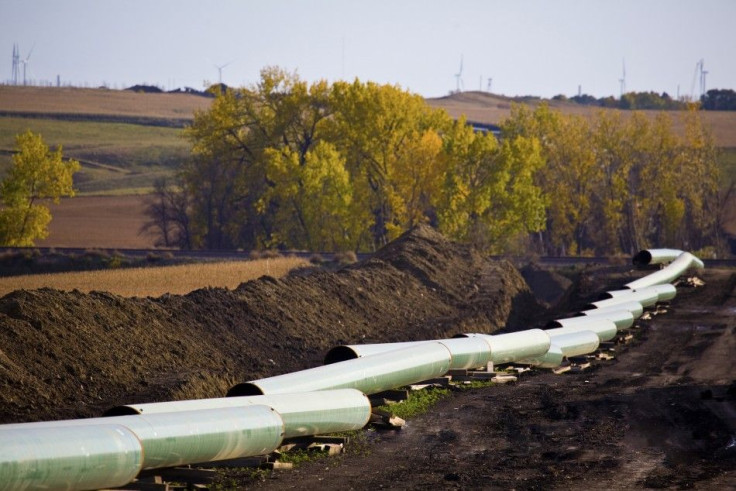Keystone Pipeline Update: Obama Approves New Cross-Border Pipeline Benefiting Canadian Oil Sand Producers

Whether or not President Barack Obama will approve the Keystone XL pipeline or not, oil sand in Alberta will continue to be extracted, as the president recently gave the go ahead in a new cross-border pipeline benefiting Canadian oil producers.
The 1,900-mile proposed Cochin, Kinder Morgan pipeline, approved on Nov. 22, will transport natural gas liquids (NGL) produced from hydraulic fracturing in Texas, north through Illinois and eventually into Alberta. There is a demand for imports of condensate to use as a diluent for blending with heavy Canadian crude.
Extracting oil sands requires a lot of energy to break down the bitumen, which is a form of petroleum in solid or semi-solid form that is blended in clay, sand and water. To flow through a pipeline it needs diluent to help break down the solid form.
Like Cochin pipeline, the Keystone XL pipeline, which would bring Alberta oil sands down to U.S. Gulf Coast refiners, needs a presidential permit that only Obama can give. So far the proposed $5.4 billion Keystone project has not received one.
Opponents object to the energy-intensive process that will release a lot of carbon emissions. Proponents, on the other hand, say the benefits of the pipeline outweigh the environmental risks because this will reduce America's dependence on oil from hostile, unstable countries in the Middle East and elsewhere.
No matter which side wins the battle, an energy expert told International Business Times that the debate between the two sides has been overblown, as market forces will determine the ultimate fate of how western Canadian crude gets out.
“Whether Keystone is approved or not, the market has forced people to look at other options,” Katherine Spector, head of commodities strategy at CIBC World Markets, said.
Spector believes that the Keystone debate has been “painted as a single variable, a be-all, end-all,” especially by environmental groups.
There are those who believe that if Keystone is not built, oil-sand production will stop and sit in Alberta, which is not the case, Spector said.
She maintains that Canadian crude is going to get out one way or the other, because of the current $42 spread between western Canadian select oil and WTI, the U.S. oil benchmark. “If you have that big of a price spread, people are going to get creative,” she said.
Speaking last week at Columbia University’s ninth annual energy symposium, "Future Now: Energy Progress in the 21st Century," Spector said that rail transportation is just one example of energy producers getting creative.
Moving crude oil on rail is appealing, as it is not tied to a single shipment line for 15 to 20 years, like pipelines, she said.
“With that kind of price differential, there are always other options; it might take a while, it might not be convenient, but you know, there are other options and I think we are seeing examples of that in rail.”
President Barack Obama some time ago delegated the State Department to determine whether the project is in the best U.S. national interest, but a recent investigation by the inspector general of the State Department, as well as the government shutdown, have delayed any decisions being taken. It is expected that Obama will announce his decision after February.
© Copyright IBTimes 2025. All rights reserved.






















